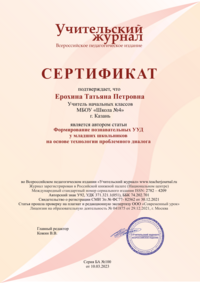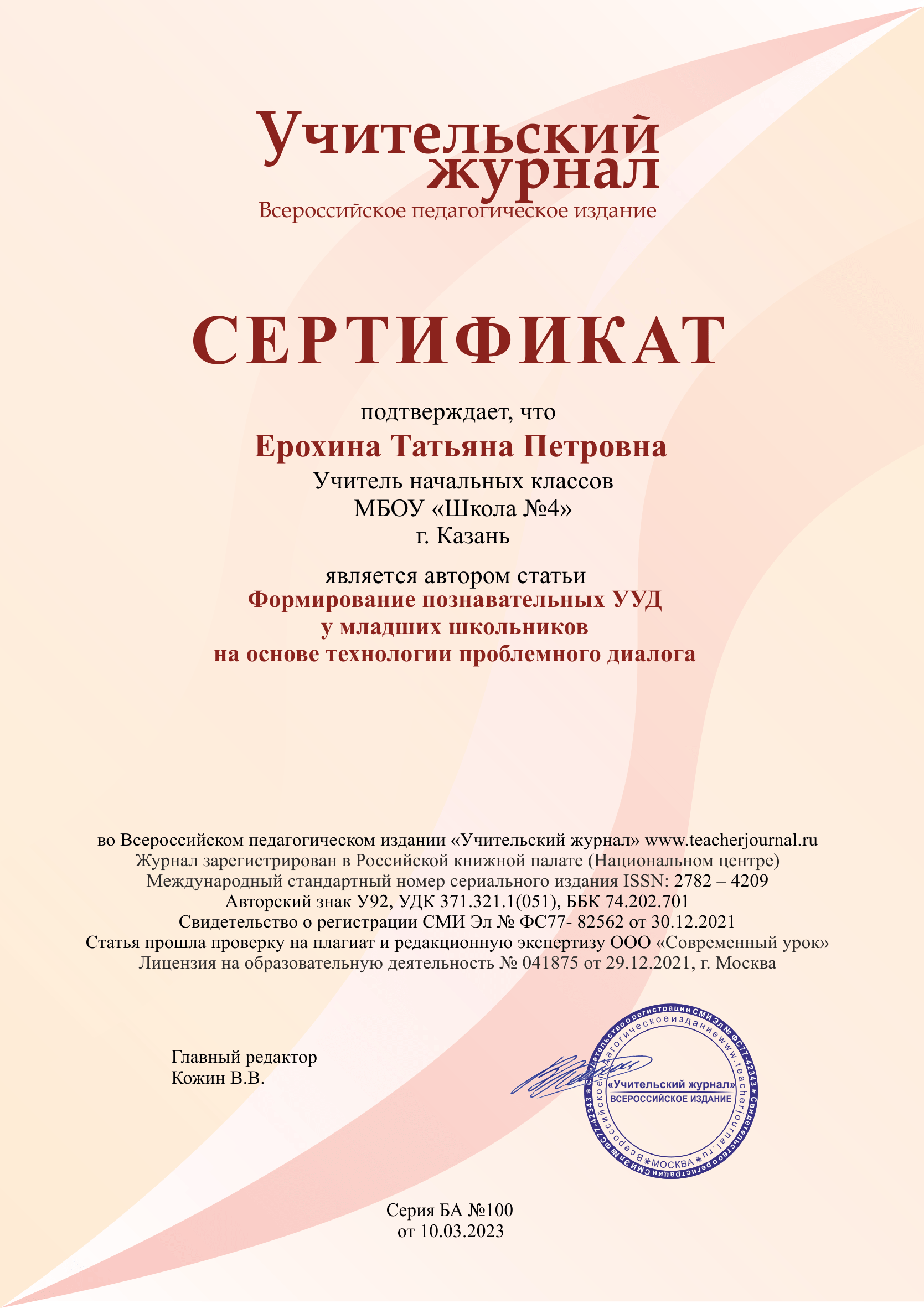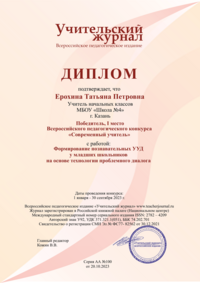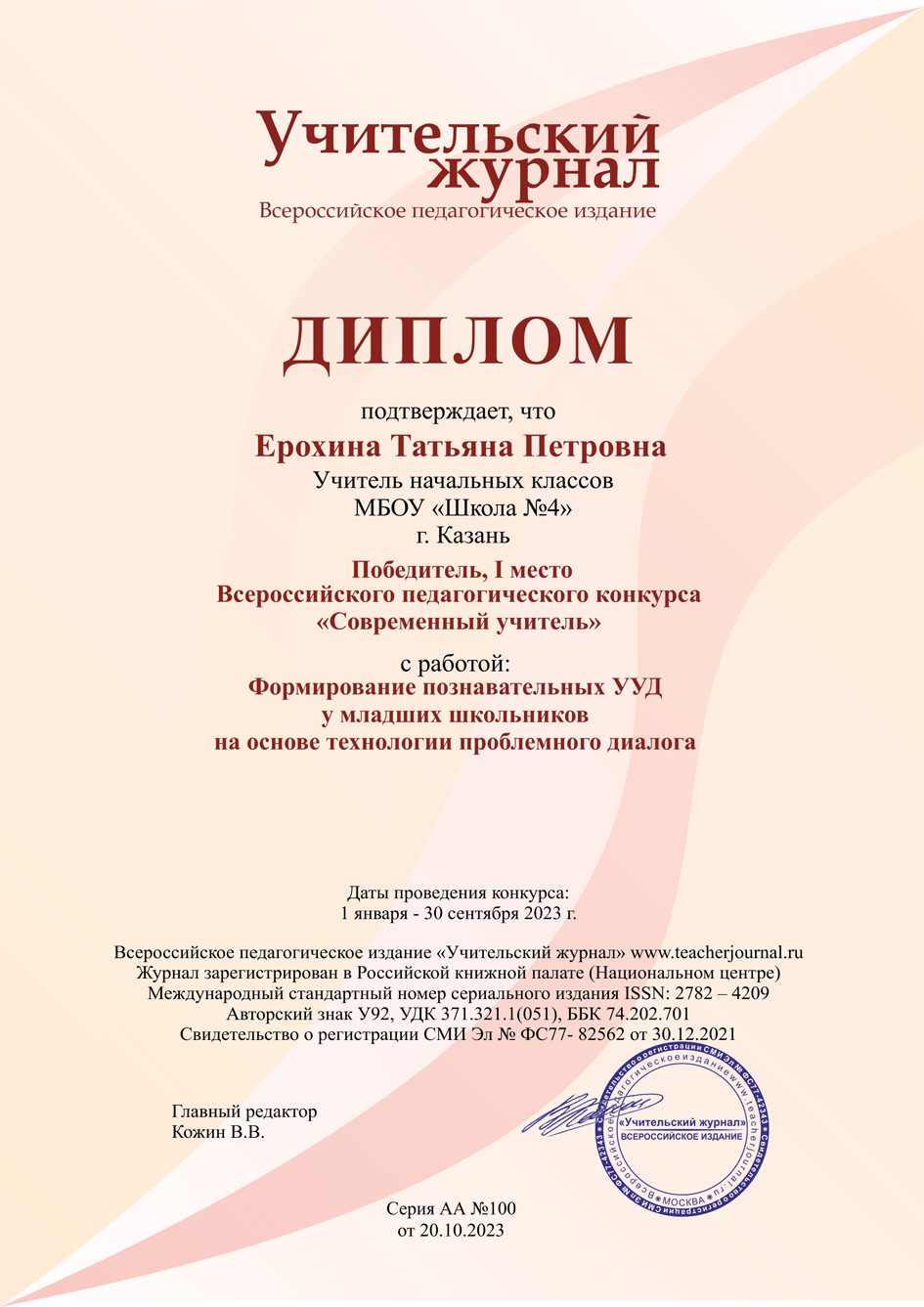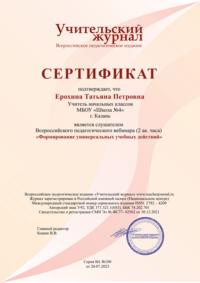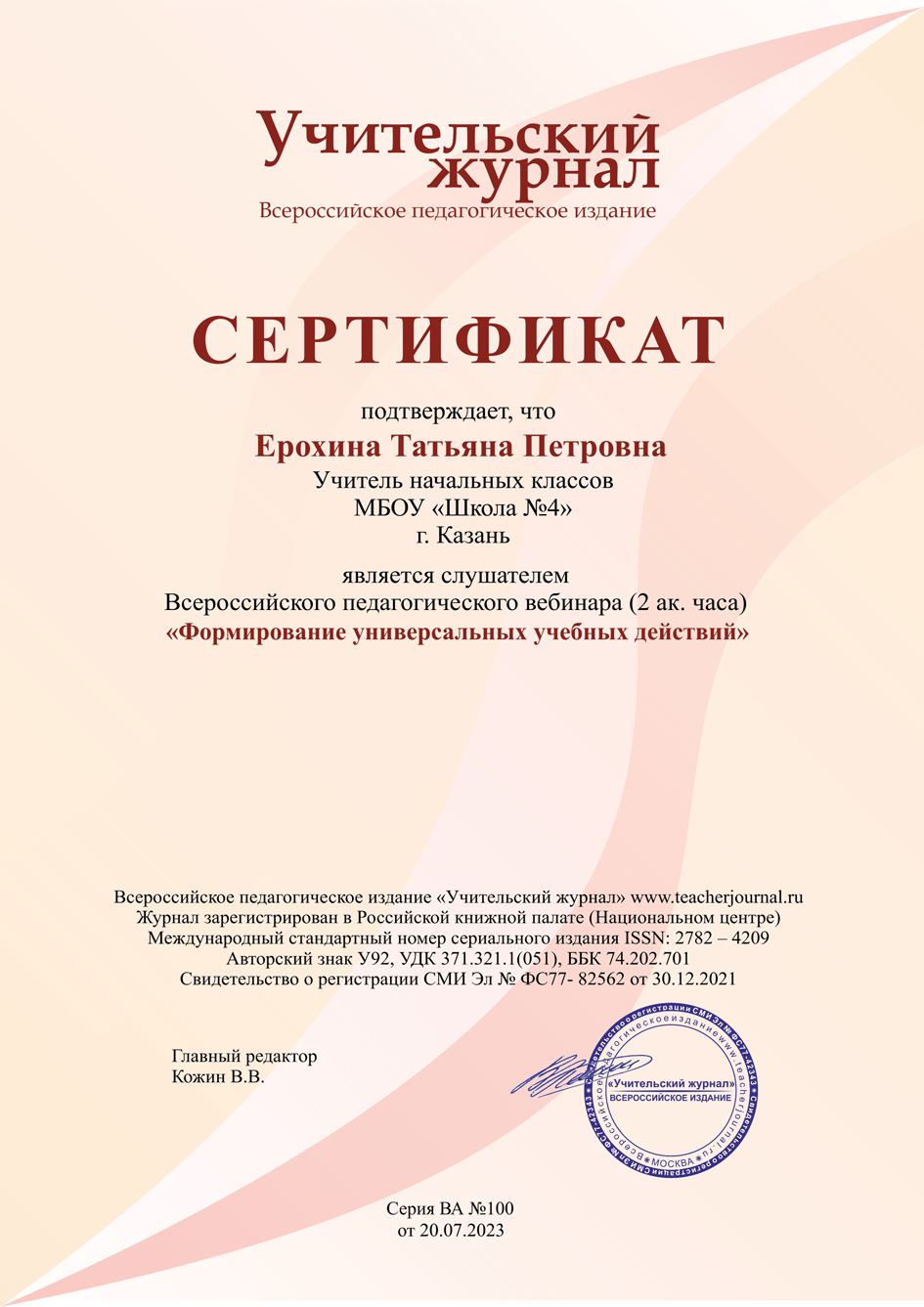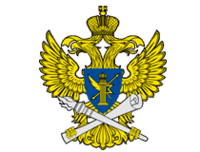Сценарий внеклассного мероприятия Жизнь и творчество Шекспира
Автор: Емекеева Галина Анатольевна
Организация: МБОУ «ЗСОШ №3»
Населенный пункт: Республика Татарстан, г. Заинск
Для проведения «Шекспировского часа» учащиеся оформляют классную комнату. С этой целью предлагаю следующее:
1) изменить расстановку мебели, например провести мероприятие «за круглым столом»;
2) украсить стены кабинета плакатами по предлагаемой тематике, подготовить очередной выпуск стенгазеты, на доске поместить широко известные крылатые выражения и фразеологизмы, принадлежащие Шекспиру.
Чтобы создать праздничную атмосферу, можно развесить в кабинете гирлянды, шары, устроить выставку творческих работ учеников, выполненных на уроках других учителей-предметников.
Необходимым считаю использование музыкального сопровождения (аудиозаписей), эпидиаскопа, раздаточного материала, наглядности.
Цели:
1. Знакомство учащихся с культурой и историческим наследием страны изучаемого языка.
2. Развитие коммуникативных способностей школьников в условиях заданной речевой ситуации.
3. Освоение новых лексических единиц. Максимальное вовлечение в работу
каждого ребенка при минимальном вмешательстве педагога во время занятия позволит подготовить детей к условиям реального общения по заданной тематике.
4. Подготовка к республиканскому форуму посвященному творчеству У. Шекспира.
Для того чтобы вызвать интерес учащихся, начинаю рассказ, сопровождая вступительную часть своего повествования музыкальной заставкой, тем самым создавая легкий, романтический настрой и обстановку непринужденности. Затем участникам мероприятия предлагаю составить по желанию небольшие (5—6 предложений) импровизированные ситуативные монологи по описанию бытовых зарисовок, костюмов того времени, внешности шекспировских персонажей. В помощь детям даются иллюстрации к шекспировским произведениям, ключевые слова и выражения, планы и схемы ответов.
Для создания эффекта неожиданности, что всегда нравится ребятам, появляется якобы не предусмотренный сценарием персонаж, который переносит действие мероприятия почти на 4 века назад в небольшой английский городок.
Ход мероприятия
Teacher (T): Good morning, dear boys, girls, parents and teachers!
Pupils (PP): Good morning!
T: I am glad to see you.
PP: We are very pleased to greet you (дети обращаются к учителю) and our guests (кланяются гостям).
T: Fine! Dear guests! I invite you to join us in our literary tour around William Shakespeare's Kingdom. It will be really wonderful! I hope you'll know many interesting things about William Shakespeare, his life and his works. Before we start our trip would you mind doing a few warming-up exercises?
PP: As many as you like!
T: Answer the questions.
Учитель показывает портрет Шекспира и задает несколько несложных вопросов, чтобы мобилизовать каждого учащегося на активную работу.
1) T: Who is it?
Р: It is William Shakespeare.
T: Right!
2) T: What is he?
P2: He is a poet (a dramatist, a writer).
T: Thank you!
3) T: What language did William Shakespeare speak?
P3: He spoke English.
4) T: Is he an English or an American poet?
P4: He is an English poet.
T: Good.
T: Shakespeare was a great English dramatist, was he not?
P5: Yes, he was.
T: I am proud of you! Well done!
После разминки приступаем к основной части учебного занятия.
Доска делится на четыре сектора.
В первом секторе даны лексика по материалу урока, опорные слова и выражения для описания внешности представителей эпохи Возрождения.
Прежде всего учитель знакомит учащихся с новыми словами и выражениями.
Т: Dear kids! Look at the blackboard. Here you can see new words and expressions. Read them aloud after me, please.
William Shakespeare Уильям Шекспир
Stratford-upon-Avon Стратфорд-на-Эйвоне
well-to-do состоятельный, зажиточный
merchant торговец, лавочник
Globe Theatre театр «Глобус»
bride [braid] невеста
delicate flush нежный оттенок
to show (past simple showed; past participle shown) показывать
ball бал
mask [mask] маска
masked ball - masquerade маскарад
courtier придворный
elegant элегантный, изысканный
festive occasion праздничное событие
rich богатый
to involve in.... принимать участие в...
to portray изображать
couple пара
noble благородный
gown [gaun] платье (женское); мантия
jacket куртка (мужская)
garments - array [a'rei] -apparel = clothes одежда
fancy маскарадный
monastic монашеский
in the foreground на переднем плане
in the background на заднем плане
Во втором секторе даются схемы, помогающие описать внешность человека (the chart "Describing Appearance").
T: Let's describe the appearance of...
What does he/she look like?
Не/She is tall/short, thin/fat/slim.
Не/She has got a(n) long/small nose, big/ small mouth, nice smile, long/short neck, big/small moustache, round/square/oval face, long/short beard.
Не/She has got long/short, straight/curly, dark fair, blonde/red/grey hair.
His Her eyes are... (blue, grey, etc.).
He She is about... (7, 17 years old).
He is wearing a jacket. She is wearing a gown.
I like him/her because he/she is wonderful, athletic, strong, protective, romantic, serious, beautiful, handsome, brave, shy, nice.
В третьем секторе помещены две репродукции, изображающие персонажей шекспировской эпохи.
Т: Do you remember how to describe somebody's appearance? If you need any help consult the chart, presented in the second section of the blackboard. Describe the boy and the girl in the pictures.
Четвертый сектор доски составляет иллюстрация сцены бала к произведению У. Шекспира «Ромео и Джульетта» (художник В. Шваринов). Здесь же дается план ответа по описанию картины.
1. What does the picture show us?
2. What or who can you see in the foreground?
3. What or who can you see in the background?
4. What are the people doing?
5. Describe the appearance of the people.
6. What kind of clothes are they wearing?
7. What atmosphere does the picture reflect?
Т: Imagine that you are art historians. What would you like to write about the picture in your pads? Make a survey, using the chart "Describing Appearance", the plan and new vocabulary. In seven minutes be ready to tell the class your general opinion of this picture.
Учащиеся составляют монологи, используя весь дидактический материал, предоставленный учителем. Во время работы педагог прослушивает фрагменты ответов учащихся в целях выявления лучшего. Один на учеников выступает с рассказом.
В качестве примера привожу один из монологов учащихся.
This picture shows us a masquerade scene. In the foreground we can see a young couple. The girl has long blonde hair, an oval face, a small nose and beautiful eyes. She is wearing an elegant, gown. The young man is dressed in a black monastic habit. He has dark curly hair and brown eyes. Both the girl and the boy look nice and romantic. In the background we can see other participants in the masked ball. All people are dressed in fancy costumes and masks. Some of them arc sitting at the table, others are dancing. The whole picture is painted in delicate colors and reflects the festive atmosphere.
T: Work in groups of three or four. Try to guess the meaning of the following expressions. Then pass me your answers in writing (выражения, помещенные на плакате, представляют собой цитаты из произведений Шекспира).
1. All the world is a stage.
2. То be or not to be.
3. Cowards die many times before their death.
4. Better a witty fool than a foolish wit.
5. Have more than you show. Speak less than you know.
Звучит музыка. Дети пишут перевод данных выражений, а в этот момент появляется новое действующее лицо (ученик старшего класса, одетый в длинную синюю мантию, украшенную звездами и буквами английского алфавита). Он хлопает в ладоши. Музыка смолкает.
— You don't seem to notice me! PP: Oh, sorry, we didn't see you. Сказочный герой обращается то к одному, то к другому ученику.
How do you do? I am a magician.
Pt: How do you do? I am Sveta.
Magician (M): I am a magician. And what is your name?
P2: My name is Sasha.
M: What is your short name?
Py My short name is Lena.
7: Dear magician! What is your name?
M: My name is Mr. Wonder. Miss! Could you allow your pupils to go to William Shakespeare's Kingdom?
T: Yes. if they accept your proposal.
Учитель обращается к ученикам.
Т: Would you like to visit the Fairyland of Shakespeare?
PP: Of course, we would.
T: This travel can show how things were long ago. By the way, how long are you staying in Shakespeare's Kingdom?
M: For half an hour.
T: Fine! What place are you staying at?
M: At Stratford-upon-Avon.
T:I think you will have a nice trip.
M: I hope so. Bye-bye.
T: See you soon. Учитель приглашает волшебника занять свое место, и тот, низко кланяясь, произносит.
М: Let's go then... Dear kids, clap your hands and say: "One. two. three: To be or not to be!" Are you ready?
PP. Yes, we are.
M: Don't worry. Shut your eyes, clap your hands and say the magic words. "One, two, three: To be or not to be!"
Дети закрывают глаза, хлопают в ладоши и говорят.
PP: One, two, three: То be or not to be!
На экран с помощью эпидиаскопа проецируется изображение маленького мальчика, сидящего под деревом.
M: My dear friends, look! It's William Shakespeare! Under the tree!
He was born on the 23d of April, 1564. His father was a well-to-do merchant. There were 8 children in their family. William was the third child. He studied at a grammar school and lived in a small town, Stratford-upon-Avon...
P: I don't like this story about the grammar school. Poor William! School was so difficult when he was a little boy. It began early in the morning and ended late in the evening.
P: Yes, but he learned Latin, Greek and many other interesting subjects. Shakespeare knew a lot!
M: Can I continue?
P: Sorry, you're welcome.
M: After finishing grammar school, he was a teacher at the same school. At the age of 18 he married Ann Hathaway. When he was 21 years old he left for London; there he made friends with many actors. Soon he began to write plays. Sometimes he worked as an actor. But the actors did not have their own theatre, that is why they built a theatre and called it "Globe".
Под звуки мелодии на экране появляется изображение театра.
М: There was a sign on its main door: "All the world is a stage."
Shakespeare wrote 37 plays. Among them are "Hamlet", "King Lear", "Macbeth", "Othello". "Romeo and Juliet"... He also wrote 154 sonnets.
На экран проецируется фрагмент кинофильма Ф.Дзефирелли «Ромео и Джульетта» с изображением сцены на балу. Звучат первые аккорды мелодии под названием “Тема любви» Нино Рота в переложении Г. Фиртича.
М: This wonderful love story is about two lovers, Romeo and Juliet. Unfortunately, they died, but they didn't stop loving each other. They stayed young forever! Listen to this beautiful melody.
Дети слушают мелодию.
M: William Shakespeare died on the 23d of April, 1616. He was buried in the church of Stratford-upon-Avon. But Shakespeare's plays are still popular. Nowadays many people like them. We laugh and cry with Shakespeare's characters. Here they are.
Волшебник показывает иллюстрации героев шекспировских произведений.
М: Our trip is coming to an end. Thank you. Please shut your eyes, clap your hands and repeat the magic words, "All's well that ends well."
Дети закрывают глаза, хлопают в ладоши, повторяя слова волшебника. Открыв глаза, один из учеников говорит.
Рр: Where are you, Mister Wonder?
P2: Where is the magician?
T: He is outside our field of vision. He told us very much. Let's keep in touch with him.
Участники вечера подготовили рассказ о жизни и творчестве В. Шекспира, выучили несколько сонетов. Старшеклассники пробовали свои силы в переводе и предложили свои варианты.
Приложение 1
William Shakespeare
The great poet and dramatist William Shakespeare is often called by people "Our National Bard", "The Immortal Poet of Nature" and the "Great Unknown".
Scientists consider that Shakespeare was born on April 23, 1564. Stratford-on-Avon is a small town in the centre of Great Britain. It is famous as the place where William Shakespeare was born.
Young Shakespeare studied at the Grammar School where boys learned Latin, Greek, and other subjects. At that time there were no theatres in England. Groups of actors traveled from town to town and played in different places, usually out-of-doors. Sometimes actors came to Stratford. Young William went to see all their shows and liked them very much. He wanted to become an actor. Sometimes he wrote little plays himself and staged them with his friends.
Life in Startford-on-Avon was hard, and when Shakespeare was twenty-one he went to London. In London he joined a group of actors.
The famous Globe Theatre was the centre of London's theatrical life. Shakespeare played on its stage and wrote plays for this theatre.
Один из учащихся рассказывает о театре «Глобус».
Shakespeare wrote most of his plays for the Globe Theatre. Now I'll tell you what the theatre of the 16th century was like.
In the middle, there was a kind of house. There the actors dressed and kept the things which were used in the performance. In front of it there was a platform. This platform, together with the balcony over it, was the stage on which the actors played. They came out of the house to the stage through two large doors.
In front of the stage was a large yard. Round the yard there were three balconies, one over the other. Both these balconies and the yard were for the people who came to see the performance. The yard and the greater part of the stage were open to the sky.
The actors were often very good. They could play, sing and dance. Women's parts were played by boys or young men. An actor often played two or three parts in one performance. Music was very important.
The performance began at three o'clock. From its beginning till it was over, people could see a flag over the theatre. The people of London loved their theatre very much. Everybody went to the theatre in London — both young and old, rich and poor. Those who could not pay much for their tickets stood in the yard. If they were tired they could sit on the ground. Rich men and their wives sat in the balconies, and aristocrats were allowed to sit on the stage. People had no newspapers, no radio or television in those days. That is why the theatre played a great part in their lives. The performance gave them great enjoyment, but they came to the theatre not only for pleasure, they came to hear the news, to learn something of the history of England or of some other country. They were taught the great science of life there.
Затем школьники продолжают рассказ о творчестве В. Шекспира.
At the same time, Shakespeare was an actor, a poet and a writer of drama. He wrote 154 sonnets, 2 poems and 37 plays, where he showed his creative genius.
The first period (1590—1600) of his creative work consists of comedies and histories.
Is this period Shakespeare wrote such histories as "King Henry IV", "King Henry V", "King Richard U", "King Richard III" and others. Here the author showed historical events and dramatic characters.
"Romeo and Juliet" is one of Shakespeare's best plays. It is a tragedy, but it was written in the first period of his creative work. This play is full of love, youth and humanism.
"Romeo and Juliet" was often staged at the theatre and it was a great success.
All of Shakespeare's famous tragedies appeared between 1600 and 1608. This was the second period of his literary work. In the plays of this period the dramatist reaches his full maturity. He presents great human problems. This period began with the tragedy "Hamlet", which was a great success.
The following plays belong to the second period: "King Lear", "Othello", "Macbeth" and others.
Shakespeare's plays of the third period (1609—1611) are called Romantic Dramas: "The Tempest", "The Winter's Tale", "Henry VIII".
In 1612, Shakespeare left London. He decided to live in Stratford Since that time Shakespeare didn't act any more and since 1613 he no longer wrote plays
Nobody knows what Shakespeare did during the last years of his life. Shakespeare died on April 23, 1616, and he was buried in this church in Stratford.
Приложение 2
Sonnets
66
Tired with all these, for restful death I cry;
As, to behold desert a beggar born.
And needy nothing trimmed in jolity,
And purest faith unhappily forsworn.
And gilded honour shamefully misplaced,
And maiden virtue rudely strumpeted,
And right perfection wrongfully disgraced,
And strength by limping sway disabled.
And art made tongue-tied by authority.
And folly, doctor-like, controlling skill.
And simple truth miscalled simplicity,
And captive good attending captain ill:
Tired with all these, from these would I be gone
Save that, to die, I leave my love alone.
66
Измучась всем, я умереть хочу.
Тоска смотреть, как мается бедняк,
И как шутя живется богачу,
И доверять, и попадать впросак,
И наблюдать, как наглость лезет в свет,
И честь девичья катится ко дну,
И знать, что ходу совершенствам нет,
И видеть мощь у немощи в плену,
И вспоминать, что мысли заткнут рот,
И разум сносит глупости хулу,
И прямодушье простотой слывет,
И доброта прислуживает злу.
Измучась всем, не стал бы жить и дня,
Да другу трудно будет без меня.
Перевод Б. Пастернака
66
Зову я смерть. Мне видеть невтерпеж
Достоинство, что просит подаянья.
Над простотой глумяшуюся ложь,
Ничтожество в роскошном одеянье,
И совершенству ложный приговор,
И девственность, поруганную грубо,
И неуместной почести позор,
И мощь в плену у немощи беззубой.
И прямоту, что глупостью слывет,
И глупость в маске мудреца, пророка,
И вдохновения зажатый рот.
И праведность на службе у порока,
Все мерзостно, что вижу я вокруг...
Но как тебя покинуть, милый друг!
Перевод С. Маршака
90
Then hate me when thou wilt'; if ever, now,
Now, while the world is bent my deeds to сross,
Join with the spite of Fortune, make me bow,
And do not drop in for an after-loss.
Ah, do not, when my heart hath 'scaped this sorrow.
Come in the rearward of a conquered woe;
Give not a windy night a rainy morrow.
To linger out a purposed overthrow.
If thou wilt leave me, do not leave me last.
When other petty griefs have done their spite,
But in the onset come: so shall I taste
At first the very worst of Fortune's might;
And other strains of woe, which now seem woe,
Compared with loss of thee' will not seem so.
90
Уж если ты разлюбить,— так теперь,
Теперь, когда весь мир со мной в раздоре.
Будь самой горькой из моих потерь.
Но только не последней каплей горя!
И если скорбь дано мне превозмочь,
Не наноси удара из засады.
Пусть бурная не разрешится ночь
Дождливым утром — утром без отрады.
Оставь меня, но не в последний миг,
Когда от мелких бед я ослабею.
Оставь сейчас, чтоб сразу я постиг,
Что это горе всех невзгод больнее.
Что нет невзгод, а есть одна беда —
Твоей любви лишиться навсегда.
Переход С. Маршака
91
Some glory in their birth, some in their skill,
Some in their wealth, some in their bodies' force;
Some in their garments, though new-fangled ill;
Some in their hawks and hounds, some in their horse;
And every humour hath his adjunct pleasure
Wherein it finds a joy above the rest.
But these particulars are not my measure;
All these I better in one general best,
Thy4 love is better than high birth to me,
Richer than wealth, prouder than garments' сost,
Of more delight than hawks or horses be;
And having thee, of all men's pride I boast:
Wretched in this alone, that thou mayst take
All this away, and me most wretched make.
91
Кто хвалится родством своим со знатью,
Кто силой, кто блестящим галуном,
Кто кошельком, кто пряжками на платье,
Кто соколом, собакой, скакуном.
Есть у людей различные пристрастья,
Но каждому милей всего одно.
А у меня особенное счастье,—
В нем остальное все заключено,
Твоя любовь, мой друг, дороже клада.
Почетнее короны королей,
Наряднее богатого наряда,
Охоты соколиной веселей.
Ты можешь все отнять, чем я владею,
И в этот миг я сразу обеднею.
Перевод С. Маршака
130
My mistress' eyes are nothing like the sun;
Cora! is tar more red than her lips red;
If snow be white, why then her breasts are dun;
If hairs be wires, black wires grow on her head.
I have seen roses damask, red and white.
But no such roses see I in her cheeks;
And in some perfumes is there more delight
Than in the breath that from my mistress reeks:
I love to hear her speak, yet well I know
That music hath a far more pleasing sound;
I grant I never saw a goddess go;
My mistress, when she walks, treads on the ground.
And yet, by heaven. I think my love as rare
As any she belied with false compare.
I30
Ее глаза на звезды не похожи,
Нельзя уста кораллами назвать,
Не белоснежна плеч открытых кожа,
И черной проволокой вьется прядь.
С дамасскоя розой, алой или белой,
Нельзя сравнить оттенок этих щек.
А тело пахнет так, как пахнет тело,
Не как фиалки нежный лепесток.
Ты не найдешь в нем совершенных линий,
Особенного света на челе.
Не знаю я, как шествуют богини,
Но милая ступает по земле.
И все ж она уступит тем едва ли,
Кого в сравненьях пышных оболгали.
Перевод С. Маршак


